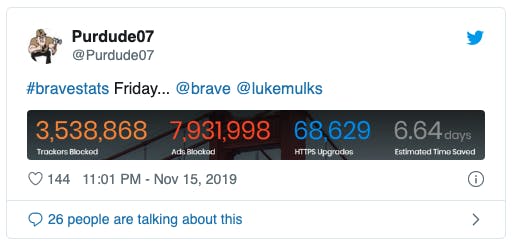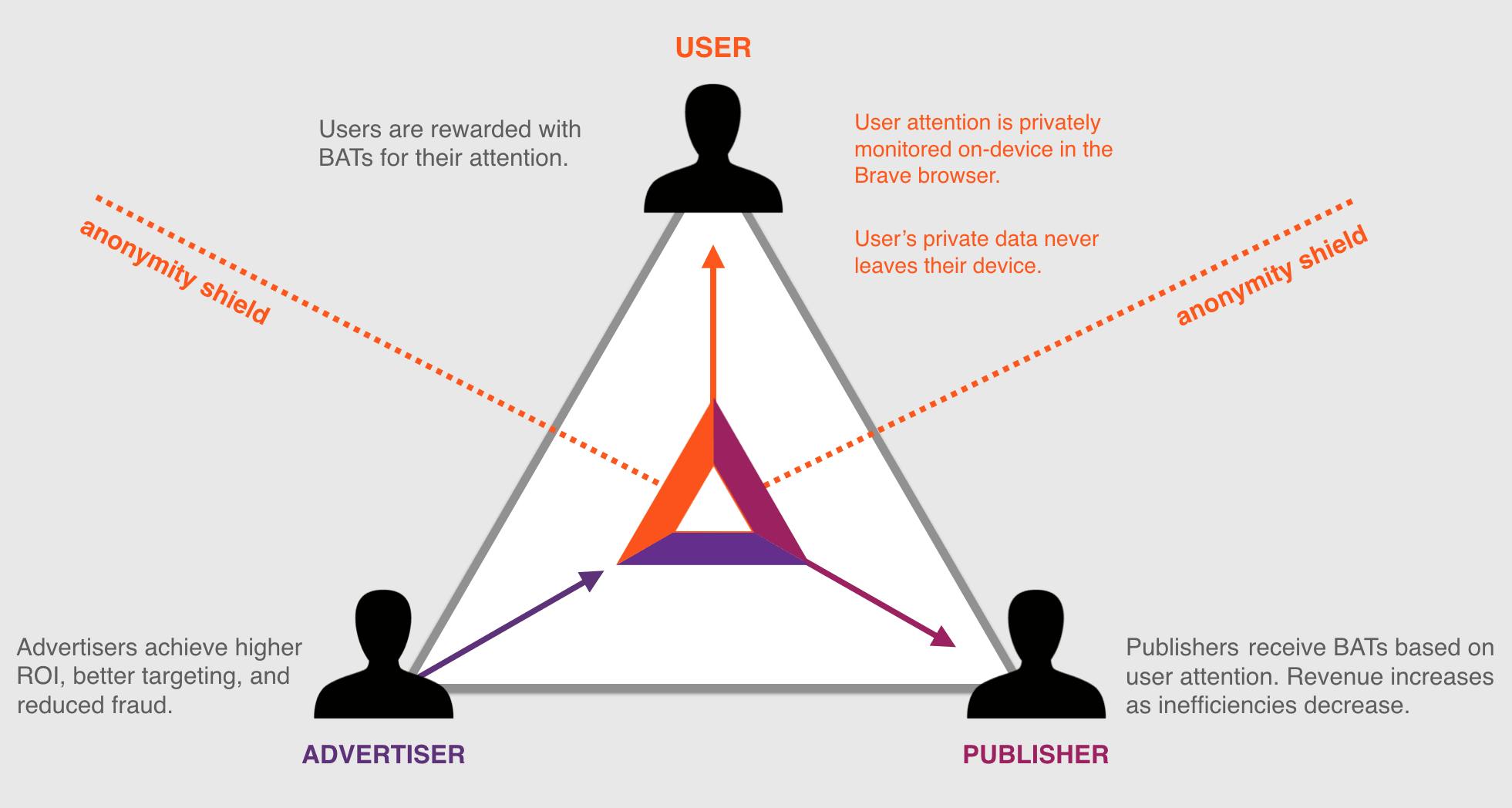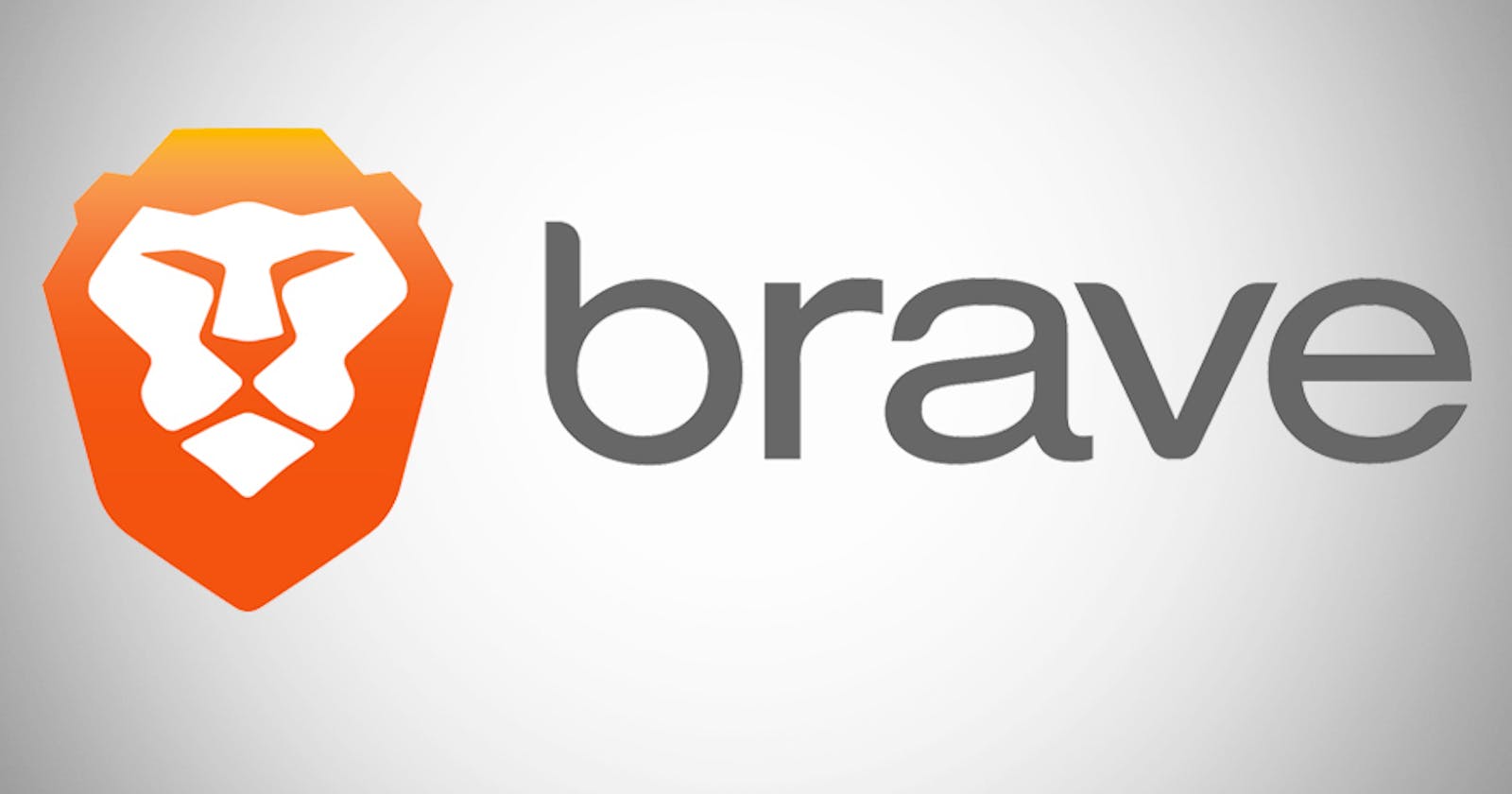I started using Brave Browser at the end of 2018 and my opinions about privacy and security changed forever, and this is why it has become my default browser on all my devices.
History & Features
Brave is a free and open source web browser based on Chromium, developed by Brave Software, which was founded on 2015 by Brendan Eich (creator of the JavaScript programming language, co-founder of the Mozilla project, the Mozilla Foundation and the Mozilla Corporation) and CTO Brian Bondy. Brave main goal is to block browser ads and website trackers, and this is done by default without the need of ad block extensions, the default ad blocker inhibits tracking of your online activities; so when you browse different sites nobody tracks you and the advertisers (a.k.a Google & Facebook) cannot collect information about your browsing history or preferences.
In addition to that it uses by default HTTPS Everywhere so the connection to websites is, whenever available, encrypted. It integrates a custom privacy focused navigation based on TOR in addition to the standard incognito mode. Brave supports all Chrome extensions so if you want to use your favourite extensions, like passwords manager (LastPass or 1Password), you can use them and you can use Brave on Windows, macOS, Linux, Android, and iOS. Some features regarding privacy are:
- Ad blocking
- Fingerprinting prevention
- Cookie control
- HTTPS upgrading
- Block scripts
- Private Windows and Private Windows with TOR
- Send “Do not track” with browsing requests
When you open a new tab by default Brave shows you how many ads & trackers has been blocked, how many HTTPS upgrade it performed and an estimated time saved (pretty cool 🤓), likes this tweet:

Speed
There are lots of comparison between Brave and other browsers (mainly with Chrome [1][2][3]), I haven't got personal benchmarks to confirm or refute this data but I think that Brave it's pretty fast, faster than Firefox, and this speed is clearly visible in all sites that have lot of ads, for example online newspapers, because the integrated Brave ad-block plays a key role in improving performance.
Market Share
- Short Answer: 0%
- Long Answer: accordingly to this post on Brave's blog on Oct 16, 2019 and this post on engadget, there are about 8 million active users, but I think the most interesting metrics about Brave is its increase in user base over the years with a 3-digit increase [source1] [source2].
BAT - Basic Attention Token
An important part of the Brave Browser is its model regarding ads. While you browse you can earn some Basic Attention Token (BAT), an ERC-20 token on the Ethereum blockchain, by viewing privacy-respecting ads. To make it simple you can earn BAT by viewing some ads while browsing websites, these ads are displayed respecting your privacy because user attention is privately monitored on the device and that data never leaves it. To make visualize this you can refer to this image:

- Users: browse internet like usual but, based on attention, they are rewarded with some BAT by viewing ads on webpages;
- Advertisers: puts ads on webpage and they can target better their ads because they receive better data on the campaigns;
- Publisher: receive BAT based on the user's attention. Subscribers, followers, or readers can automatically tip a set amount of BAT to custom publishers or give one-time tips in an amount of their choice.
Conclusion
Brave is a privacy focused browser, fast like Chrome (at least more that Firefox), it has a default ad-block and trackers block, you can use it on pretty much all your devices, you receive some BAT while you browse, you can browse in "super" incognito mode with TOR. I think it has all the features to be used as a default browser and I definitely recommend everyone to try it for a few weeks.
Alberto
Programmer's Appendix 👨💻: you can browse Brave Browser source code in its official Github Repo

